Soundproofing. There's a lot of myth and folklore that surrounds the subject. So here's your guide to the most common soundproofing mistakes. After all, get soundproofing right and you'll be able to enjoy a quieter life.
1 Not seeking advice from qualified IOA registered professionals such as SRS
You can mess about with mattresses and egg boxes all you like, but failing to bring in the professionals in the worst cases of noise pollution is mistake number one. Sound Reduction Systems (SRS) has many soundproofing solutions for both domestic and industrial use and has excellent technical credentials. The company is widely recognised as a leading manufacturer of sound insulation and sound absorption materials, a result of 40 years' experience in the acoustic-supply industry. The firm's technical team is Institute of Acoustics-registered and can be relied upon for comprehensive and accurate advice on any noise pollution problem.
2 Poor acoustic design in rooms
Reverberation can be a problem in halls and classrooms. Sound Absorbers like SRS's Sonata Aurio Acoustic Panels can control the issue, but the right number must be used, as classrooms have different reverberation time requirements from multi-purpose halls, for example. They look good and can be applied with adhesive – so no drilling required. Speak to SRS if you would like an assessment on this issue.
3 Poor acoustic design on buildings
SRS recommends Acoustilay, a high performance acoustic underlay for floors. As for Soundproofing for walls and ceilings, Maxiboard can meet the sound insulation performance requirements of Part ‘E’ of the Building Regulations for separating structures. A sister product, Maxideck, has been developed for timber floors.
4 Poor installation
Sadly, poor soundproofing installation is rife. Problems include shortcuts, poor site practice and the omission of materials. SRS soundproofing materials are typically very easy to install, resulting in fewer on-site issues.
5 Specification erosion
Specification erosion involves using cheaper, poorer-quality clone products that are claimed to be as good as the originals. However, they typically don't have the same performance or track record. For example, SRS's Acoustilay, which substantially reduces impact noise and airborne sounds, is one of the most copied products on the market. However, Acoustilay is so good that these copycat products can not match Acoustilay's outstanding performance.
6 Thinking mineral wool is the solution
Mineral wool is excellent thermally and for fire resistance, but it has little soundproofing performance as an acoustic absorber.
The acoustic experts at SRS suggest using their Maxiboard product. If the plasterboard remains on the stud-work, it can be removed from one side of the partition and the area between the existing studs filled with mineral fibre. SRS Resilient bars will then be placed on the wall so that Maxiboards can be installed.
If the plasterboard on the other side of the stud-work is in good condition, it can remain, and an extra layer of fire-rated plasterboard fixed directly through the existing plasterboard. If existing boards are damaged, they should be replaced by two layers of fire-rated plasterboard with all offset joints. For optimum acoustic performance, any sockets or switches on the Maxiboard wall should be surface-mounted, or flush-fitted using SRS Acoustic Socket Boxes.
7 Thinking it is possible to replace a carpet with a laminate/timber floor and acoustic underlay and not have the downstairs neighbours complain
Laminate and timber floors are attractive but do pose soundproofing problems in flats and apartments. Most underlays from DIY shops promise a 20dB reduction, but that's unlikely, as this figure uses a bare concrete floor for comparison. Much better is to use SRS' two heavier versions of Acoustilay: Acoustilay 8 and Acoustilay 15. These acoustic flooring insulation products have a long-lasting resilient core with a mass-loaded acoustic barrier. Together, they control both the ‘thud’ and the ‘clip-clop’ noises associated with hard floors.
8 Comparing laboratory test performance with site performance when looking for soundproofing materials
The laboratory test performance will always return a bigger number because of idealised test conditions. Talk to SRS about how a site might affect the performance of different materials. Our advice is always free.
9 Not asking to see substantiation of acoustic performance
Don't just take their word for it. A good soundproofing company, such as SRS, will always be glad to demonstrate the performance of their equipment. In fact, SRS publishes all product performance online in each of the product sections of the SRS website.
10 If in doubt, ask
If you have any doubts about the suitability of any materials or solutions for your circumstances, don't be afraid to ask. Any reputable company will be open and honest with you.










